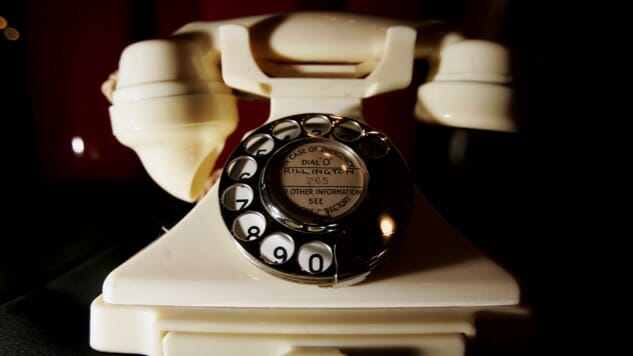I Am a Congressional Caller: A Woman Explains Her Activism
Photo by Bruno Vincent
In a recent study, it was revealed that women have made 86% of the calls to representatives since the election. Even more specifically, middle-aged women have made half these calls. To get a sense of scale, Senator Chuck Schumer’s office reported an average of one and a half million calls to the Senate in the first week of February alone. That wasn’t a one-week spike; that’s just a specific week in the midst of what’s become a sustained effort.
I’m one of those middle-aged women. So I feel eminently qualified to offer a perspective on why we make the overwhelming majority of these calls. If the comment threads to the daily calls to action I post on Facebook are any indication, I can verify women outpace men when it comes to reporting “done” about any specific call or set of calls.
Let me introduce myself as living up to nearly every cliché of a Hillary-loving middle-aged lady, from greying hair to a bleeding liberal, progressive heart. I wanted, amongst other things, to see little Charlotte and Aidan scamper across the White House lawn. I wanted my third grade daughter to see a woman become the President. Since November 9, I’ve been a mix of distracted, freaked out, enraged (I call it “RAGEY” all-caps) and determined. Very, very determined. The mixture has an extra dollop of unwillingness to take no for an answer when it comes to advocating for myself, a wholly new personal phenomenon that took nearly three million votes to lock in. After two decades, during which I’ve been more wrapped up in local endeavors, I’ve experienced a sudden, new iteration of my activist, NPR-obsessed self. I knew my efforts had to fit into the container of my everyday life. I read about Indivisible and “got it”: calls to representatives’ offices are counted and thus quite effective. I looked at calls as low hanging fruit so I grabbed them. As a result, my kids—and my husband, honestly—often roll their eyes at me. Their perspective upon my calls and constant postcard stream is to view my actions as somewhere between adorably silly and utterly ridiculous.
Readers, I ignore them.
Back to the original question: why are women the ones to make these calls? Here’s why: this isn’t glamorous work. It’s grunt work. You make a call; the call tends to last under a minute. You say your thing—“I want to keep health care for my neighbors,” or “I am in opposition to bans and walls and violent deportation.” The aide replies: “I’ll let so-and-so know how you feel, thank you.” And that’s that. There’s not a better way to sugarcoat grunt work but to liken it to so many domestic chores women traditionally take on disproportionately, such as the dishes and laundry. My current to-do lists often include both laundry and calls to my reps, which my friend Maggie describes as “democracy work.”
These calls, as we’ve witnessed with outcry over travel bans, certain cabinet appointments—cough, Puzder, cough, but also DeVos, Sessions, Tillerson and Gorsuch—and health care matter. They matter a lot. These calls represent a very important part of the 2017-citizen-pressure narrative, the one that has particular Republican representatives hiding from constituents. Some have even turned off their phones, like Paul Ryan, who then met a postcard avalanche at his home address because of the magical Internet. The calls jam up offices’ time.
-

-

-

-

-

-

-

-

-

-

-

-

-

-

-

-

-

-

-

-

-

-

-

-

-

-

-

-

-

-

-

-

-

-

-

-

-

-

-

-








































